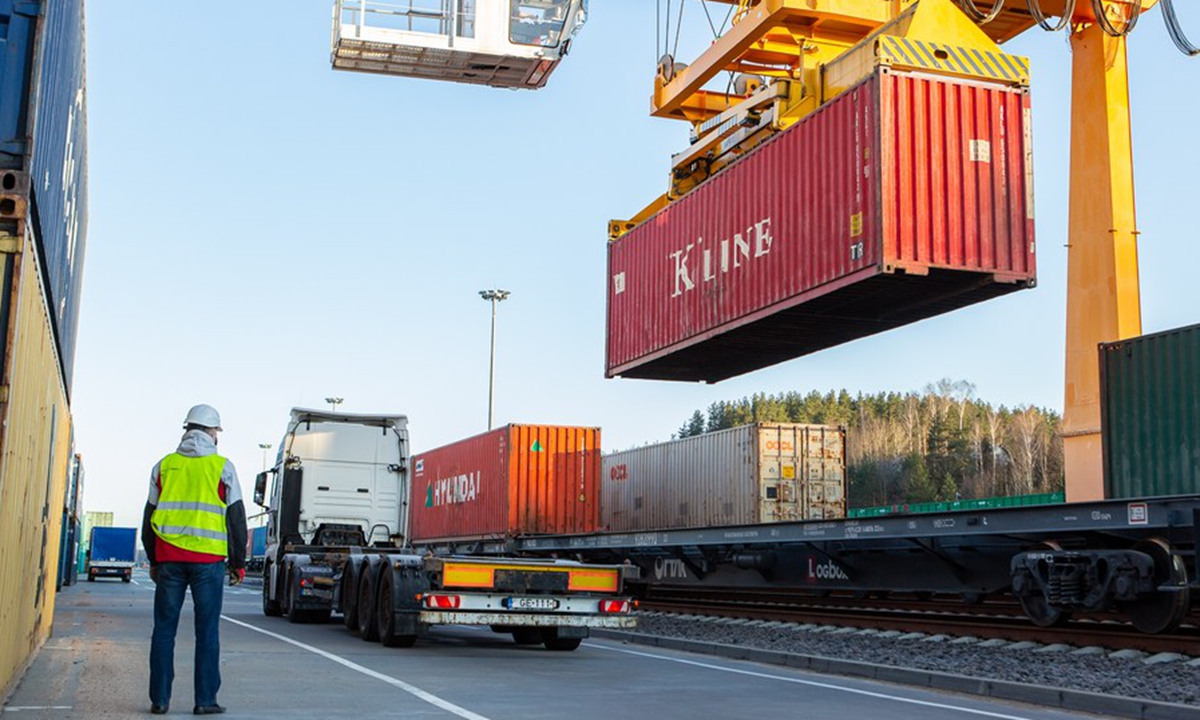
The "China Post" CR Express 1st block train is unloading in Vilnius, Lithuania, April 14, 2020. Photo: Xinhua
At a time when China-EU cooperation faces delicate moment amid headwinds for a bilateral investment deal, some may consider Lithuania's latest announcement of withdrawal from the "17+1" cooperation platform as another indication of EU's tough stance toward China, which, in fact, may be more like a testimony of the complicated voices within the 27-nation bloc.Lithuania's Foreign Minister Gabrielius Landsbergis told AFP on Saturday that the Baltic state "no longer considers itself a 17+1 format member" and urged other EU countries to follow suit to pursue "a much more effective 27+1 approach."
The minister also called the 17+1 cooperation mechanism "divisive" for the EU, but that only serves to highlight the strong political intention and ideological bias behind the country' decision to quit the cooperation initiative with China.
If anything, several recent moves by Lithuania targeting China may be the real demonstration of lack of united voice within the EU. Several months ago, the country announced the opening of a trade office in China's Taiwan.
Some in Lithuania may believe that the withdrawal decision by the Baltic state, as one of the EU countries, may add pressure on China, but they will probably be in for a big disappointment. China won't be intimidated by its move, because Lithuania's misperception of "17+1" won't hurt China's interests at all.
The "17+1" initiative is a cross-regional cooperation platform based on mutual benefit and equal footing, which has witnessed tangible results and achievements in a number of areas. Statistics showed that in 2020, trade volume between China and the 17 CEEC countries reached $103.45 billion, exceeding $100 billion for the first time and an increase of 8.4 percent year-on-year despite the pandemic impact.
While it is no secret that Western Europe has long been suspicious of the "17+1" mechanism, such economic cooperation hasn't constituted a major geopolitical conflict within the EU. This is because most CEEC countries are able to gain more development opportunities through cooperation with China, allowing them to narrow the gap with other EU member states.
Now Lithuania has shut the door to such development opportunities, but the trend toward China-CEEC cooperation under the long-term mechanism won't be affected.
Lithuania, on the other hand, has the most to lose. The small Baltic country has reportedly positioned itself as a gateway for Chinese FinTech companies to access to CEEC and EU markets. Yet, their most recent action may change a lot, its economic development plan may face new challenges due to political uncertainty, to the detriment of its economy.



